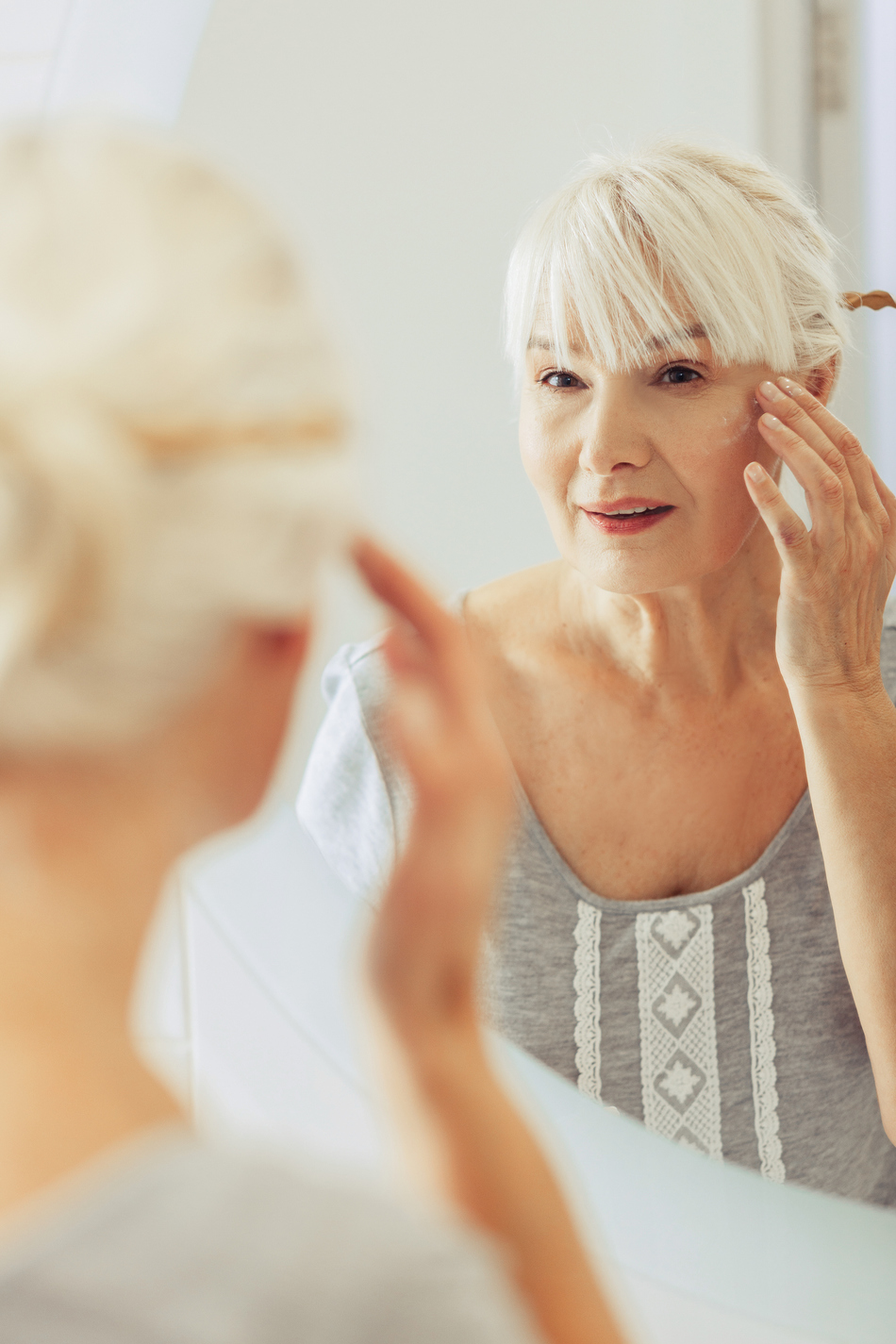
Announcer: Health information from experts supported by research. From University of Utah Health, this is thescoperadio.com.
Interviewer: So you look in the mirror and you're starting to see the signs of aging on your face. What options are available to you at any point in life? I'm here with Dr. Cori Agarwal. She is an Associate Professor of Plastic Surgery at the University of Utah Health. So Dr. Agarwal, what are the kinds of people that are coming in for facelifts or rejuvenations? Is there a particular age, or is it all across the board?
Dr. Agarwal: It's definitely all across the board. I think when people start to see their face change at all, there is a little bit of panic that age is coming and they want to come in and see what their options are to slow things down or maintain their youth as long as possible. So we get people even in their 20s or 30s who may be seeing new wrinkles show up and asking what could be done and is it time for a surgery or what other options we can offer them.
Interviewer: At 20 or 30, what kind of things are we seeing? Are we, you know, just a little wrinkles and stuff and what options are available for, say, that age group?
Dr. Agarwal: So in that age group, it would be rare to have a full face lift recommended, but it's very common that you would benefit from things like Botox, which relax the wrinkle lines and maybe fillers that would soften some of the early wrinkles that you would get at those early ages. Other options at those ages would be products that can rejuvenate the skin, like Retin-A, some light chemical peels, things short of surgery.
Interviewer: So we're not looking at a full face change, you know, pull everything back up. It's these small rejuvenation type changes for that age group.
Dr. Agarwal: Yeah. And one thing to point out though is that everyone does age differently. I think a lot of it comes down to your genetics, your exposure to the outdoors and the sun and wind. People can age earlier. So sometimes in the 30s, that decade, people will benefit from a small surgery of some kind, and it's worth coming in and talking to your surgeon at that point if you have certain areas that are starting to sag or droop.
Interviewer: So when you get into the you said a small surgery, I've heard mini facelift or what kind of small surgeries are available?
Dr. Agarwal: Smaller surgeries could be something like eyelid lift, blepharoplasty where there's just a little bit of extra skin. If there is such a thing as a mini facelift, that really focuses on the middle portion of the face, less so on the neck. And another option is facial fat grafting where you're just plumping up some areas, like the cheeks, possibly to add some a youthfulness.
Interviewer: So besides these fillers and, you know, smaller surgeries and other options available, what is the age that most people are getting, say, the full facelift?
Dr. Agarwal: There isn't an absolute age, but I think we start to see people coming in who would benefit from a lift somewhere in the late 40s, 50s. I think those decades, the neck becomes more lax, and I think it's when the jowls form and the neck becomes lax that you're really looking at needing something more rather than just use more minimal techniques to correct that. If you have extra skin hanging in the jowls and neck, you're probably going to do best with a facelift.
Interviewer: So say a patient is looking in the mirror and they're seeing some of the signs of aging, what's the first step that they should do to find out what procedures are even available to them?
Dr. Agarwal: So I think the best advice for that individual is to go in and have a consultation and talk to your surgeon and learn what's out there, learn about what may be best for you, what you're looking for, for your skin type, for your age and I think you can come up with a plan. And you may combine surgery with some of these resurfacing or noninvasive techniques out there to really optimize your result.
Announcer: Have a question about a medical procedure? Want to learn more about a health condition? With over 2,000 interviews with our physicians and specialists, there's a pretty good chance you'll find what you want to know. Check it out at thescoperadio.com.
Understanding and Treating Droopy Eyelids
Whether they are caused by aging or genetics, droopy eyelids can affect more than just your appearance—they can also impair your vision. Plastic surgeon Dana Johns, MD, offers her expert advice on effective treatments.



